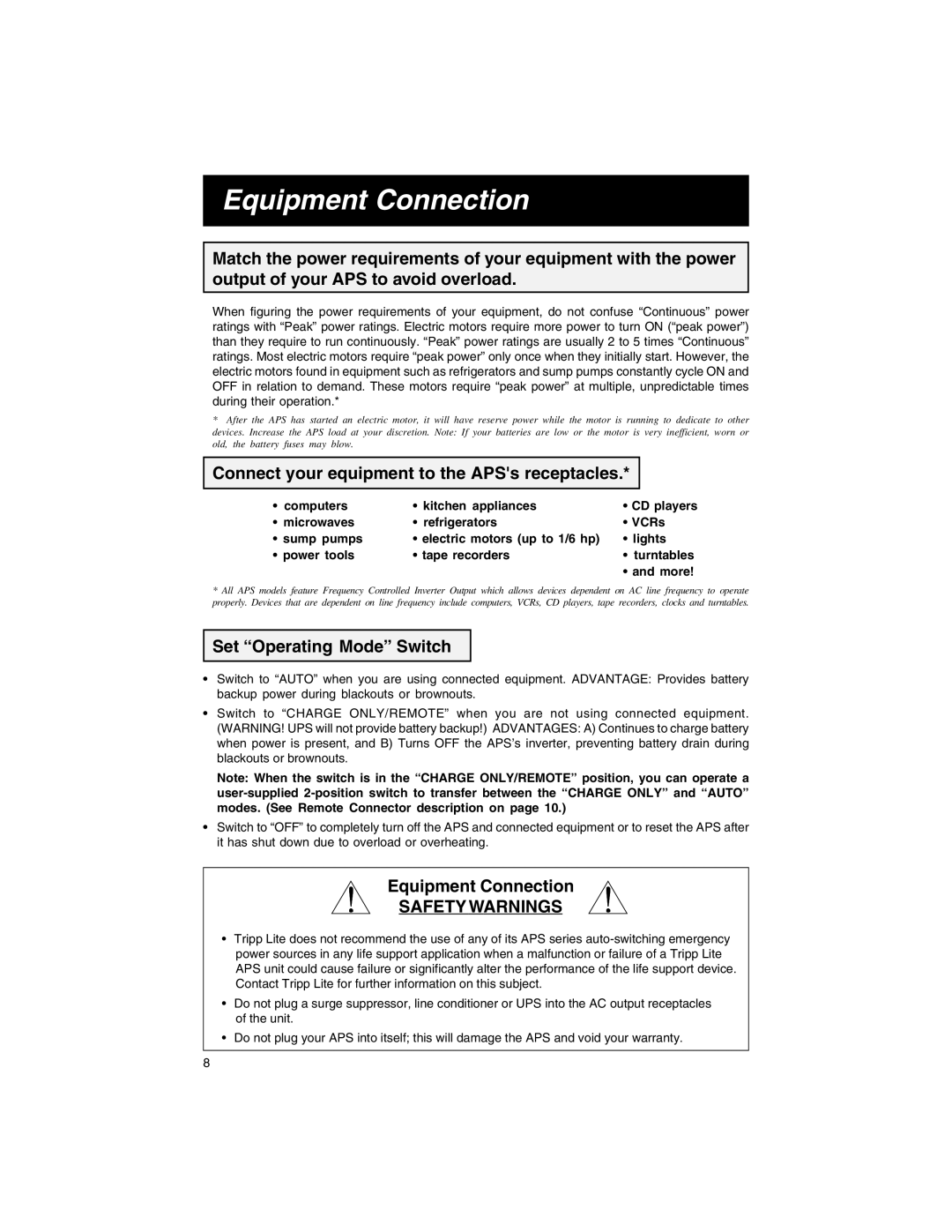
Equipment Connection
Match the power requirements of your equipment with the power output of your APS to avoid overload.
When figuring the power requirements of your equipment, do not confuse “Continuous” power ratings with “Peak” power ratings. Electric motors require more power to turn ON (“peak power”) than they require to run continuously. “Peak” power ratings are usually 2 to 5 times “Continuous” ratings. Most electric motors require “peak power” only once when they initially start. However, the electric motors found in equipment such as refrigerators and sump pumps constantly cycle ON and OFF in relation to demand. These motors require “peak power” at multiple, unpredictable times during their operation.*
*After the APS has started an electric motor, it will have reserve power while the motor is running to dedicate to other devices. Increase the APS load at your discretion. Note: If your batteries are low or the motor is very inefficient, worn or old, the battery fuses may blow.
Connect your equipment to the APS's receptacles.*
• computers | • kitchen appliances | • CD players |
• microwaves | • refrigerators | • VCRs |
• sump pumps | • electric motors (up to 1/6 hp) | • lights |
• power tools | • tape recorders | • turntables |
|
| • and more! |
*All APS models feature Frequency Controlled Inverter Output which allows devices dependent on AC line frequency to operate properly. Devices that are dependent on line frequency include computers, VCRs, CD players, tape recorders, clocks and turntables.
Set “Operating Mode” Switch
•Switch to “AUTO” when you are using connected equipment. ADVANTAGE: Provides battery backup power during blackouts or brownouts.
•Switch to “CHARGE ONLY/REMOTE” when you are not using connected equipment. (WARNING! UPS will not provide battery backup!) ADVANTAGES: A) Continues to charge battery when power is present, and B) Turns OFF the APS’s inverter, preventing battery drain during blackouts or brownouts.
Note: When the switch is in the “CHARGE ONLY/REMOTE” position, you can operate a
•Switch to “OFF” to completely turn off the APS and connected equipment or to reset the APS after it has shut down due to overload or overheating.
Equipment Connection
SAFETY WARNINGS
•Tripp Lite does not recommend the use of any of its APS series
•Do not plug a surge suppressor, line conditioner or UPS into the AC output receptacles of the unit.
•Do not plug your APS into itself; this will damage the APS and void your warranty.
8
